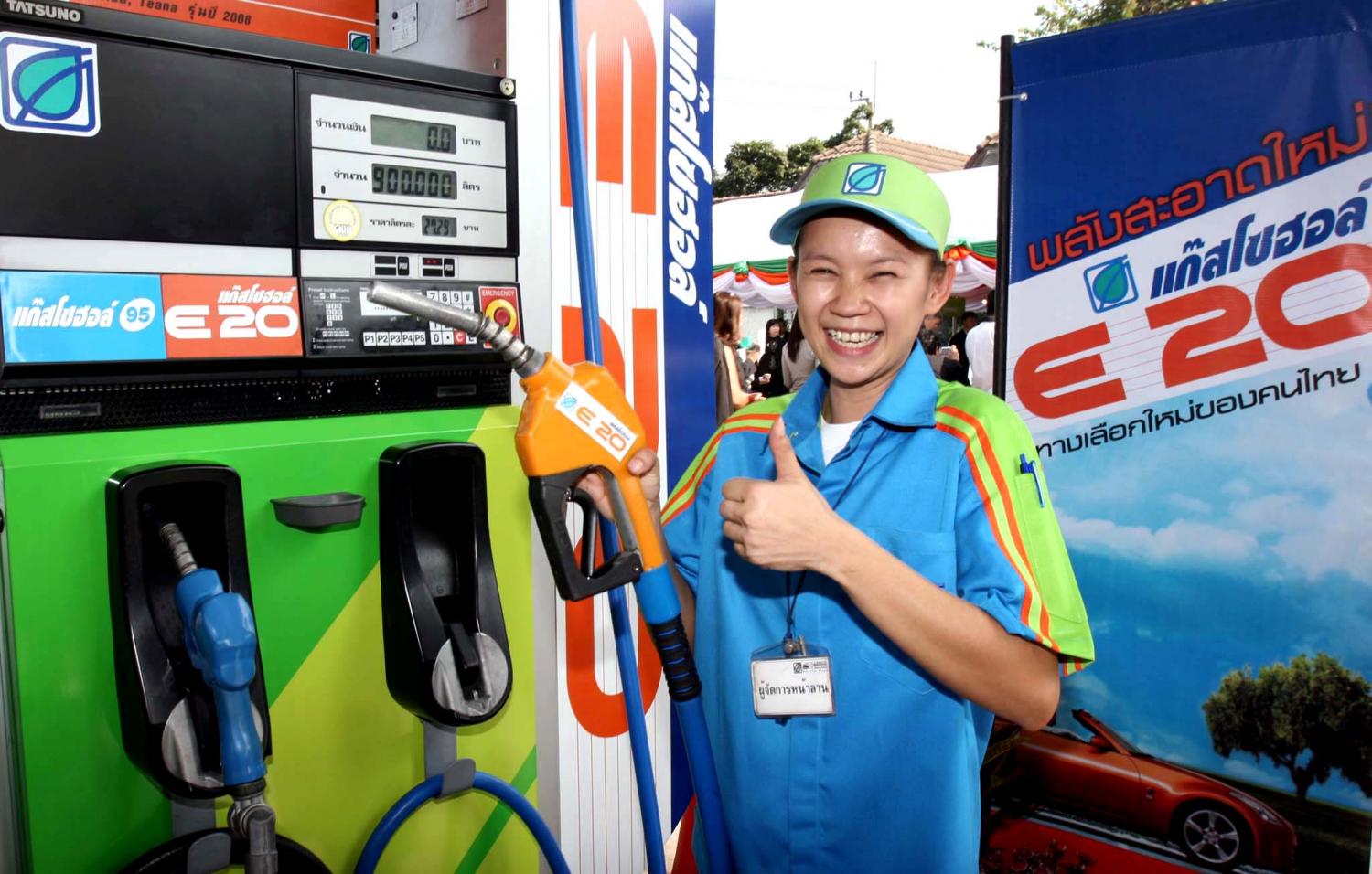
Gasohol E20 will become the primary petrol for the country early this month, requiring all petrol stations nationwide to carry the ethanol-blended fuel, says the Energy Business Department.
Director-general Nantika Thangsuphanich said the department will discuss the scheduled enforcement of E20 with fuel traders and refineries.
E20 was launched in Thailand over a decade ago to use ethanol from molasses and cassava, making up 20%, blended with unleaded petrol at 80%.
But local use was well below the government's expectations.
In 2019, E20 consumption stood at 6.5 million litres per day, representing 20% of all types of petrol at 32-33 million litres per day.
Ms Nantika said E20 has been subsidised to make the retail price lower than for gasohol 91 and 95, two E10 fuels that are more popular with motorists.
The discussion with traders and refiners will also cover the new standard for E20, informing motorists that E20 is equally efficient as E10.
The department also plans to phase out gasohol 91 from petrol stations, while gasohol 95 will remain available.
For the usage of gasohol types, the department expects ethanol demand to double to almost 8 million litres per day from 4 million litres per day in line with the government's policy to increase biofuel consumption.
Thailand has five categories of petrol at retail pumps: gasohol 91 E10, gasohol 95 E10, E20, E85 and premium ULP 95 petrol.
These categories may be cut to three or four in the coming years, according to Energy Minister Sontirat Sontijirawong.
The department has set a time frame for any switch within the third quarter of this year.
The Energy Ministry is enforcing biodiesel B10 as the primary diesel and downgrading B7 to an optional diesel, effective this month.
"We want to make agricultural commodities like palm oil, sugar and cassava have a higher price by using them in biofuels," Mr Sontirat said.
The Oil Fuel Fund Office recently lowered B10 and B20 prices by a further 50 satang per litre, making prices cheaper than B7 by three baht and 3.5 baht per litre, respectively.
B10 is scheduled to be available at all petrol stations nationwide this month.
Ms Nantika said the amendment of the national oil plan for 2018-37 will have a public hearing this month and the process will take until May before the final draft is announced.
"The oil plan will focus on biofuels and electric vehicles as priorities," she said.